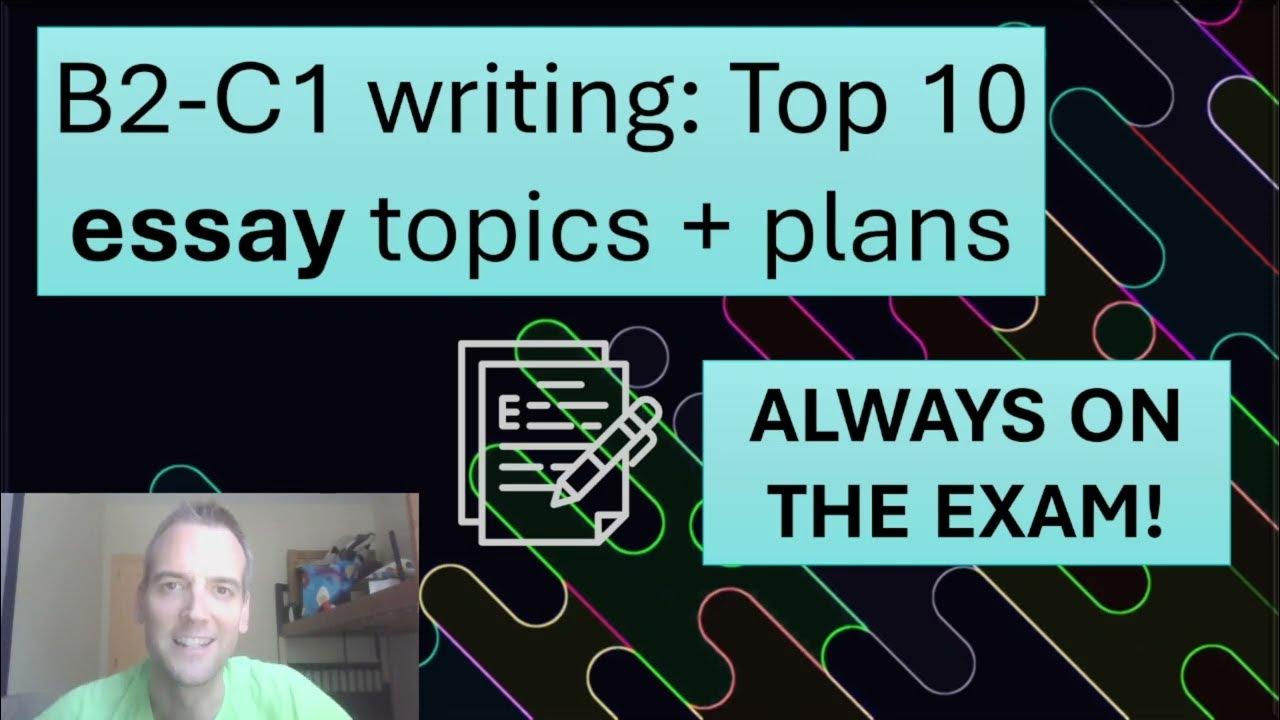iGCSE First Language English - Directed Writing: MY TOP 5 TIPS!
Summary
TLDRIn this educational video, the English teacher focuses on preparing students for the Cambridge First Language English exam. They offer five top tips to excel in the directed writing task, which is considered challenging and carries significant marks. Tips include practicing non-fiction writing, recognizing text features, assuming character roles, addressing all bullet points, and distinguishing between explicit and implicit ideas. The instructor encourages practice and provides additional resources for further assistance.
Takeaways
- 👋 Greeting and introduction to the channel, which is dedicated to helping students prepare for the Cambridge First Certificate in English exam.
- 📚 Emphasis on the importance of practicing non-fiction writing, including letters, speeches, articles, and reports, to succeed in the exam.
- 📝 Highlighting the directed writing question as a challenging part of the exam, worth a significant 25 marks, and the need to master it.
- 🔍 Clarification of terminology used for the exam's writing tasks, including 'directed writing question', 'directive writing question', and 'extended writing response'.
- 📘 Explanation of the differences between the coursework component and the exam papers, especially regarding the directed writing task.
- 🎭 Tip on understanding the character's role in the text to influence language, tone, and stylistic devices used in the response.
- 📋 Importance of addressing all three bullet points given in the exam, aiming for three paragraphs of equal length with relevant ideas from the text.
- 🤔 The need to distinguish between explicit and implicit ideas in the text, with a suggestion to watch a related video for further understanding.
- 📈 Stress on the process of extracting, rewording, and developing ideas from the text for the exam response.
- 📚 Encouragement to watch previous videos for model responses and walkthroughs on the directive writing question.
- ✍️ Invitation for students to leave comments if they are struggling with the exam, with a promise to respond quickly.
Q & A
What is the main purpose of the video?
-The main purpose of the video is to provide five top tips to help students succeed with the directed writing question in the Cambridge First language English exam.
What is the directed writing question also known as?
-The directed writing question is also known as the directive writing question, the extended writing response, and sometimes referred to as the non-fiction task.
Why is the directed writing question considered important?
-The directed writing question is considered important because it is worth a significant 25 marks and can greatly impact a student's overall score in the exam.
What is the first tip the teacher gives for the directed writing question?
-The first tip is to practice non-fiction writing, including different styles such as letters, speeches, articles, newspaper reports, formal reports, and dialogues.
What does the teacher suggest students should know about each given text type?
-Students should know the typical features associated with each text type, such as the use of direct and reported speech in newspapers, text types that use persuasive language, and those that require a more formal register.
What role does the character play in the directed writing question?
-In the directed writing question, students are often asked to imagine being a particular character in the text, which requires them to understand and adopt the character's perspective, tone, and language style.
What is the fourth tip the teacher provides for addressing the directed writing question?
-The fourth tip is to ensure that students address all three bullet points given in the question, aiming for three paragraphs of equal length with about five ideas from the text in each paragraph.
What is the difference between explicit and implicit ideas in the context of the directed writing question?
-Explicit ideas are directly stated in the text, while implicit ideas are inferred or suggested by the text. Students need to understand this difference to effectively develop their responses.
What does the teacher suggest for students who are struggling with the directed writing question?
-The teacher suggests that students should practice, practice, practice, and also check out previous videos for model responses and walkthroughs of the directive writing question.
What will the teacher focus on in the next video?
-In the next video, the teacher will be focusing specifically on non-fiction writing to further assist students with the directive writing question.
How can students get help if they are struggling with the directed writing question or other aspects of the First language English exam?
-Students can drop a comment on the video, and the teacher will get back to them as soon as possible to provide assistance.
Outlines

此内容仅限付费用户访问。 请升级后访问。
立即升级Mindmap

此内容仅限付费用户访问。 请升级后访问。
立即升级Keywords

此内容仅限付费用户访问。 请升级后访问。
立即升级Highlights

此内容仅限付费用户访问。 请升级后访问。
立即升级Transcripts

此内容仅限付费用户访问。 请升级后访问。
立即升级浏览更多相关视频

iGCSE First Language English - How to EVALUATE ideas (Directed Writing/Coursework)

iGCSE First Language English - How to write a formal report (Non-fiction writing)

Most common B2-C1 ESSAY topics

iGCSE First Language English - How to Summarise Information Walkthrough

iGCSE First Language English - The Writer's Effect: MY TOP 5 TIPS!

Latihan Soal PTS/UTS Bahasa Inggris kelas 1 SD Semester 1 Tahun 2023
5.0 / 5 (0 votes)
